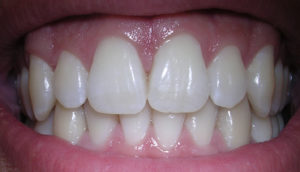 Depending on what you normally eat (your dietary pattern), you can either increase your risk for strokes or can decrease your risk. It's up to you.
Depending on what you normally eat (your dietary pattern), you can either increase your risk for strokes or can decrease your risk. It's up to you.
A large European study involving 9 countries and 418,329 persons found that regularly eating greater amounts of fruits, vegetables, fiber (from foods), milk, cheese, and yogurt were each linked to a lower risk of ischemic stroke. But not hemorrhagic stroke. However, hemorrhagic stroke was associated with a greater consumption of eggs.
The great majority of strokes are ischemic strokes, which occur when an artery in the brain becomes blocked. [Fatty deposits lining the vessel walls, called atherosclerosis, are the main cause.] Hemorrhagic strokes are due to leaking or bursting of a blood vessel in the brain.
On average, participants who developed an ischemic stroke reported lower intakes of cheese, cereals and cereal products, fruit and vegetables, legumes, nuts and seeds, but higher intakes of red and processed meat. [NOTE: Once again a diet rich in fruits, vegetables, whole grains, seeds, nuts is best. Think Mediterranean style dietary pattern.]
Unfortunately, the participants in the study only answered one lifestyle and food questionnaire (asking about their usual diet) at the start of the study, after which they were followed for 12.7 years. The thinking is that people tend not to change how they eat over time. (But is that true for everyone?)
Looking at the study details, I unfortunately did not see any mention of highly processed foods, or oils (vegetable, canola, corn, palm, olive, etc). There is a lot of excitement right now about extra virgin olive oil being healthy, anti-inflammatory, and "protective" for a number of diseases.
From Medical Xpress: Study of 418,000 Europeans finds different foods linked to different types of stroke ...continue reading "The Foods You Eat And Stroke Risk"

 Another study that found benefits to dog ownership. The study authors concluded that: "Our study provides evidence that dog owners are at a lower risk for ischemic stroke, hemorrhagic stroke and heart failure." This could be to daily exercise, or that dog ownership results in less stress or better psychosocial health, or even some other reason (perhaps dog owners are healthier to start with). Note: myocardial infarction (MI) is commonly known as a heart attack. From Medscape:
Another study that found benefits to dog ownership. The study authors concluded that: "Our study provides evidence that dog owners are at a lower risk for ischemic stroke, hemorrhagic stroke and heart failure." This could be to daily exercise, or that dog ownership results in less stress or better psychosocial health, or even some other reason (perhaps dog owners are healthier to start with). Note: myocardial infarction (MI) is commonly known as a heart attack. From Medscape: The finding that the oral bacteria Streptococcus mutans, which is found in 10% of the population, is linked with hemorrhagic strokes is big. S. mutans is found in tooth decay or cavities (dental caries). The researchers found a link with cnm-positive S. mutans with both intracerebral hemorrhage (ICH) and also with cerebral microbleeds.
The finding that the oral bacteria Streptococcus mutans, which is found in 10% of the population, is linked with hemorrhagic strokes is big. S. mutans is found in tooth decay or cavities (dental caries). The researchers found a link with cnm-positive S. mutans with both intracerebral hemorrhage (ICH) and also with cerebral microbleeds. A banana a day keeps the doctor away? A recent
A banana a day keeps the doctor away? A recent